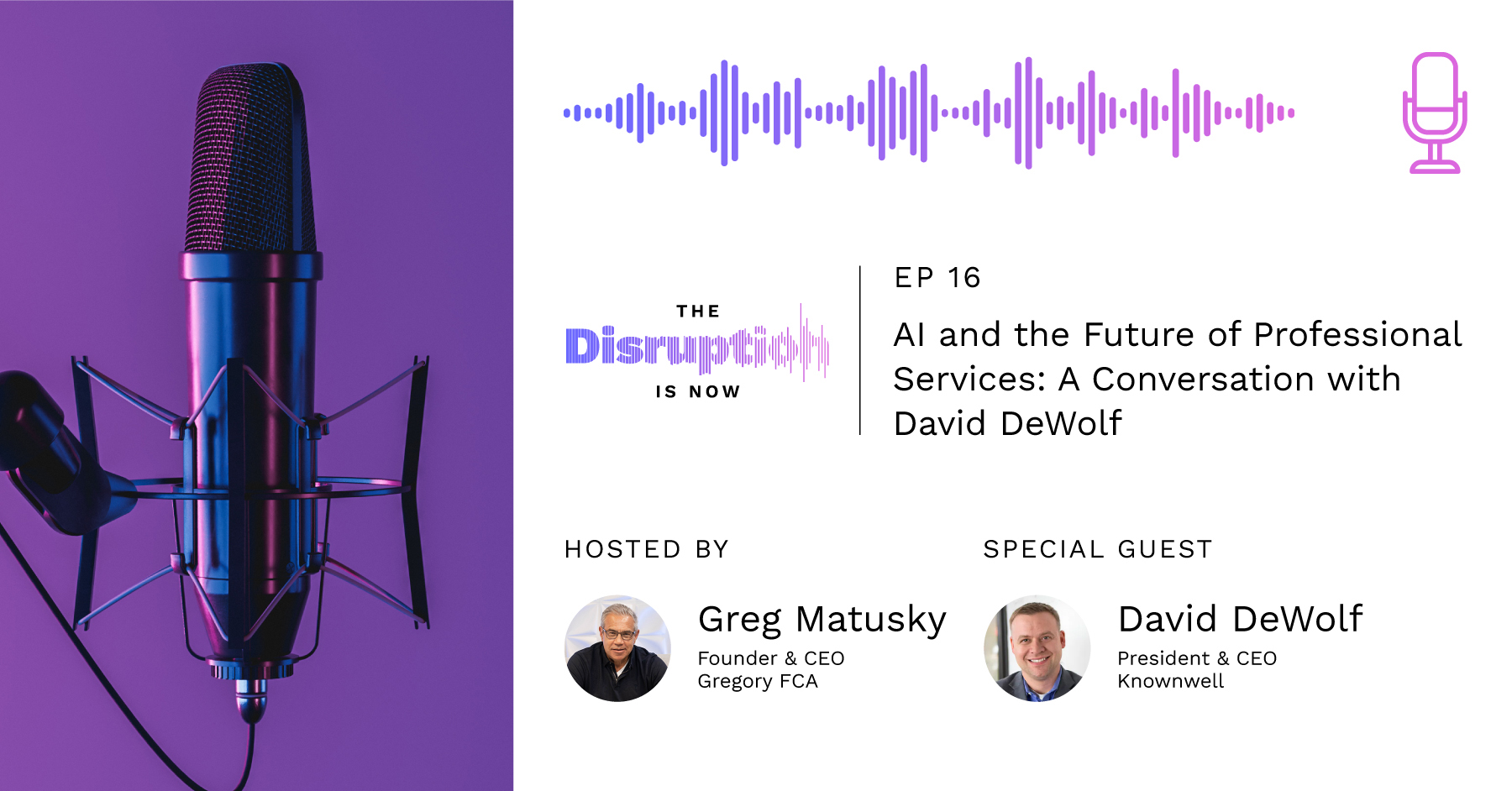ChatGPT exploded into the world and democratized AI in a way no product had before. But AI has been advancing for decades, and enterprise AI adoption was quietly accelerating long before ChatGPT. Now it’s stepping into the spotlight.
In this episode of The Disruption Is Now, host Greg Matusky pulls back the curtain on AI’s growing role in business. He’s joined by David DeWolf, CEO of enterprise AI solutions company Knownwell, to discuss AI’s expanding role in data analysis, decision-making, and even replicating an executive’s “gut feel” at scale.
They cover how AI can revolutionize knowledge worker productivity, automating the orchestration, operations, and bureaucracy that take up 85% of the average knowledge worker’s time. Plus, they look at both the history and the future of AI to chart what’s next in 2024.
Listen in as these experts explore the maturing capabilities of AI in the enterprise, where business processes remain ripe for disruption.
Watch now:
Key takeaways:
AI is mature enough for enterprise use
While consumer apps like ChatGPT seem brand new, AI has been quietly adopted by organizations for decades. For example, David highlights how national security agencies have long used AI for surveillance and threat detection.
Clearly, AI is mature enough for enterprise use. With recent democratization unlocking new capabilities, companies in every industry are now ramping up AI deployment. Expect AI to rapidly permeate across roles from communications to operations.
Operations and workflows are the next target for AI disruption
The eye-opening statistic that 85% of employees’ time goes towards coordination versus core work explains why workflows are ripe for an AI overhaul.
Meetings, emails, status updates, reports, and other administrative tasks consume days for knowledge workers. David foresees new AI systems automating these cumbersome activities, allowing humans to focus on higher, more impactful responsibilities that enhance their productivity and job satisfaction.
AI can replicate gut instinct at scale
Humans get overwhelmed by too much data, but AI can cut through noise to surface the one relevant detail.
David gives the example of AI parsing client communications to detect subtle relationship issues. That’s something an experienced executive would pick up on gut instinct, but AI can make those insights available across an enterprise where any executive only has limited visibility.
It can also combine disparate information to infer probable outcomes. This ability to replicate human intuition and connect dots will transform data-driven decision making.
Key moments:
● How Knownwell’s Intelligent Enterprise Operating System works (0:58)
● The impact of data on business decision-making (2:20)
● AI can replicate gut instinct (4:12)
● Balancing logic and gut feeling (5:29)
● The importance of scaling gut instinct (8:05)
● Context and data-collection in decision-making (9:59)
● Many enterprises only look at 10-20% of the data they have (11:00)
● The two powerful use cases of AI (14:02)
● The five altitudes of work and where AI is headed next (15:00)
● Greg’s three levels of AI advancement in PR (18:40)
● Amazon’s supply chain as the best example of workflow optimization (24:00)


